Athletes need a carefully planned diet with enough nutrition to supplement their high-intensity activities. Most athletes preferring meat in their diet don’t find it hard to manage and plan their diet, as many pre-made options exist online. However, for athletes choosing a plant-based approach, it is a big challenge to find and combine different plant-based food components to supplement their growth.
What this really means is that careful balance matters, and without structure, even a nutrient-rich diet may fall short. Our vegan athlete meal planning guide solves this with strategy and proper guidance.
Macronutrient Balance
The body needs carbohydrates to provide energy, protein to rebuild, and fat to maintain hormonal balance, but so many underrate the proportionality. A proper vegan meal plan involves smart meal planning and spacing these macronutrients in turn, not simply taking the plant foods in a random manner.
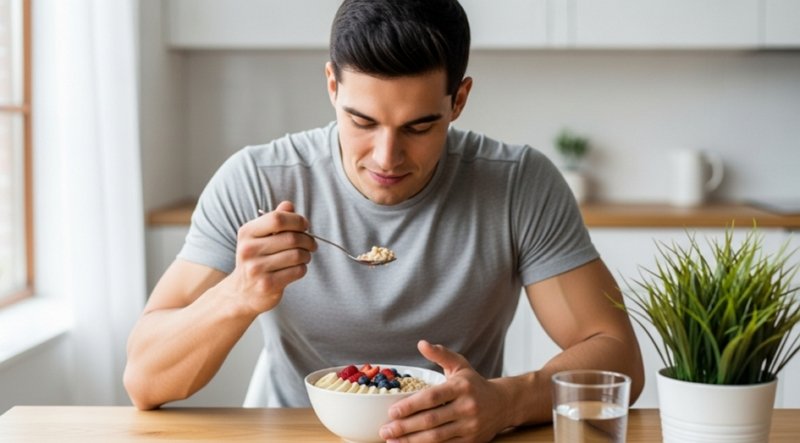
Macronutrients are a very important part of a vegan diet
Carbohydrates fuel workouts effectively, while proteins provide structure for muscle growth. Meanwhile, healthy fats stabilize hormones and joint health. Without proper ratios, your athletic performance suffers even if you are taking in enough calories.
| Macronutrients | Percentage of Calories | Food Sources Example |
|---|---|---|
| Carbohydrates | 50 to 60% | Oats, brown rice, sweet potato, quinoa, or beans |
| Protein | 20 to 25% | Lentils, tempeh, seitan, tofu |
| Fat | 20 to 25% | Flaxseeds, chia, avocado, walnuts |
Protein Sources
Protein is the area where most athletes are uncomfortable with plant-based diets, but it is a baseless objection. When you do proper meal planning, it provides coverage by blending varied protein-rich foods throughout the day. Tofu and tempeh, which are soy-based proteins, offer most amino acids, while beans and rice, between them, fill voids.
When divided intelligently, these options facilitate muscle recovery without the need to fall back on powders. Here are some vegan protein sources that are ideal for athletes:
- Tempeh: 31 grams per cup
- Seitan: 21 grams per 3 ounces
- Lentils: 18 grams per cup
- Black beans: 15 grams per cup
- Tofu: 20 grams per block
Meal Timing
Nutrients matter, but timing increases their effect on the body. Your meal planning flourishes only under the discipline of organizing pre- and post-workout periods with purpose. Before training, quick carbohydrates from bananas or rice cakes give immediate energy.
Once you are done training, pairing protein with complex carbs like lentils with brown rice aids glycogen recovery and muscle repair.
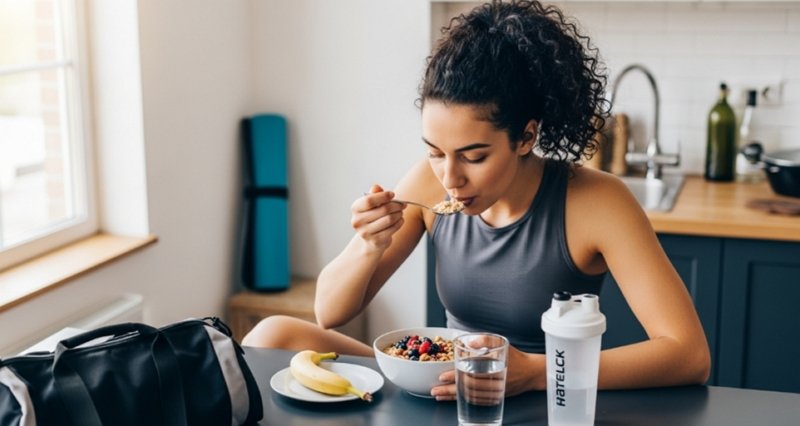
Proper meal planning helps athletes perform better
This is important for athletes, as spacing meals evenly throughout the day prevents energy crashes. Plus, including evening protein-rich snacks helps overnight recovery. In short, the rhythm of meals proves just as decisive as the content.
Micronutrient Focus
Energy and muscle gain dominate headlines, but that’s not the only thing that matters for an athlete. Iron from beans or fortified cereals, calcium from soy milk, and zinc from pumpkin seeds all need attention. While doing meal planning for a vegan athlete, one must consider vitamin B12, which only supplementation or fortified foods provide.
Additionally, Omega-3 fatty acids from chia or flaxseeds matter for joint health. Those athletes who neglect these details risk fatigue or slow recovery. Athletes engaged in high-intensity training should also consider creatine monohydrate, which shows performance benefits yet comes in vegan-friendly forms. These are the key micronutrients you must prioritize:
| Micronutrient | Vegan Source |
|---|---|
| Vitamin B12 | Fortified plant milks, nutritional yeast, B12 supplements |
| Iron | Lentils, chickpeas, kidney beans, pumpkin seeds, fortified cereals |
| Calcium | Fortified soy milk, fortified orange juice, tofu set with calcium, leafy greens (kale, bok choy) |
| Zinc | Pumpkin seeds, hemp hearts, beans, cashews, oats |
| OMEGA-3 | Chia seeds, flaxseeds, walnuts, flax oil, hemp seeds |
Sample Meal Plan
Although the ideal meal plan for a vegan athlete depends on factors like their weight and training intensity, we can still find a common ground for reference. So, we have provided three different vegan meal plans for different types of exercise needs.
Please note that these are for reference, and you can adjust them according to your daily needs or by taking guidance from professional nutritionists at FIT4IT.

A professional nutritionist can help with a vegan meal plan
Endurance Training
This sample meal plan is based on PCRM ultra-athlete guidelines and is ideal for those athletes who do intense training.
Purpose: Long runs, cycling, and triathlon training.
Calorie Goal: 3000 kcal
| Time | Meal Description |
|---|---|
| Pre-morning | Banana with dates + 16 oz electrolyte water |
| Breakfast | Smoothie bowl with berries, banana, plant protein, sprouted toast with avocado |
| Lunch | Big Buddha bowl: quinoa, lentils, roasted veggies, hummus, carrot sticks, coconut water |
| Dinner | Sweet potato & black bean enchiladas, steamed greens with tahini, brown rice |
| Snacks (throughout) | Energy bars, dates, fruit, nuts. Focus on energy density and variety. |
Strength/Bodybuilding Day
For those vegan athletes who need higher protein and calories than endurance, this meal plan is a good starting point.
Purpose: Muscle gain and power training
Calories: 3080 kcal
| Meal | Content |
|---|---|
| Breakfast | 200 g tofu scramble + sourdough + veggies |
| Lunch | Black beans, sweet potato, broccoli, avocado |
| Snack | Smoothie: banana, berries, flax, soy milk, pea protein |
| Dinner | Lentil-buttercup curry + quinoa + cashews |
Team Sport Day
When you need balanced fueling for moderate activity, this meal plan is a good starting point.
Purpose: team training or mid-volume workouts.
Calories: 2100 to 2200 kcal
| Meal | Menu and Macros |
|---|---|
| Breakfast | Oats with almond butter, chia, banana, flax, soy milk |
| Lunch | Quinoa salad w/ chickpeas, roasted veg, avocado |
| Snack | Protein bar + apple |
| Dinner | Tofu stir-fry with brown rice & broccoli |
| Post-workout | Plant protein smoothie + peanut butter toast |
Hydration Strategy
Although the primary focus of this discussion has been on a vegan diet, hydration shapes performance outcomes equally. Water should remain the foundation, though endurance athletes may require electrolyte solutions for longer sessions.
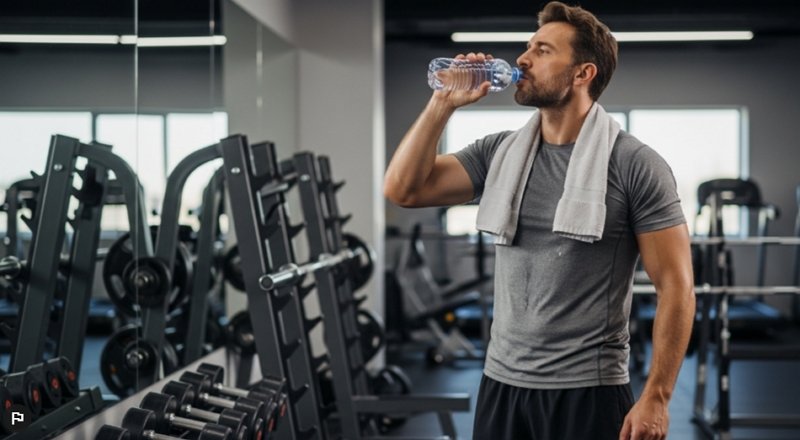
Staying hydrated helps with performance and recovery
Coconut water, though natural, lacks sodium for extended training. In its place, you can use fortified electrolyte drinks, as they often work better. Moreover, post-workout hydration supports recovery as much as carbohydrates or protein.
Common Mistakes
While making a meal plan, you should avoid these mistakes:
- Many athletes rely too heavily on processed vegan substitutes. It leaves critical gaps in micronutrients and long-term recovery support.
- Some underestimate their true calorie requirements, which often causes unintended weight loss and slower post-workout healing.
- Athletes often ignore vitamin B12 or iron intake, which creates hidden deficiencies that lower endurance and mental sharpness.
- Too few protein sources are rotated daily, which limits the amino acid diversity that muscles require for proper repair and adaptation.
- Omega-3-rich foods such as chia, flax, and walnuts are skipped too often, which increases inflammation risk during heavy training.
Conclusion
Every athlete needs consistency, but vegan athletes particularly need thoughtful balance. Vegan athlete meal planning combines macronutrients, meal timing, and micronutrient focus with long-term rhythm. It isn’t about restricting choice but about sequencing meals to support performance and recovery.
With structured planning, plant-based athletes gain not only strength but also energy resilience across seasons. Performance depends less on supplements or exotic foods than on repetition of balanced daily meals. As we say at FIT4IT, discipline in planning today ensures sustainable results tomorrow.
Was this helpful?
Good job! Please give your positive feedback
How could we improve this post? Please Help us.
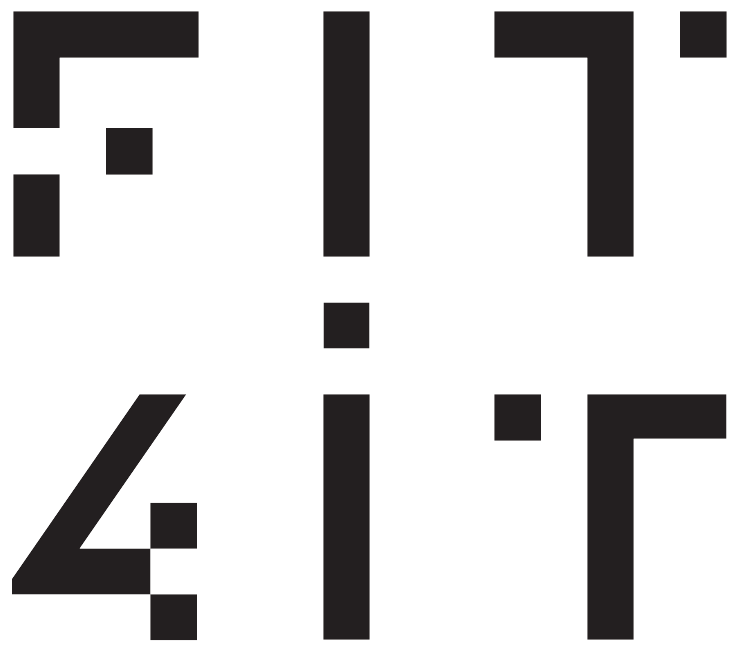

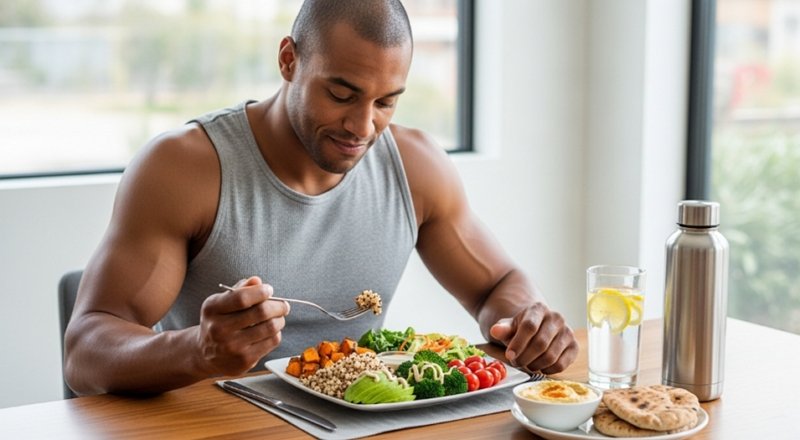



No Comments